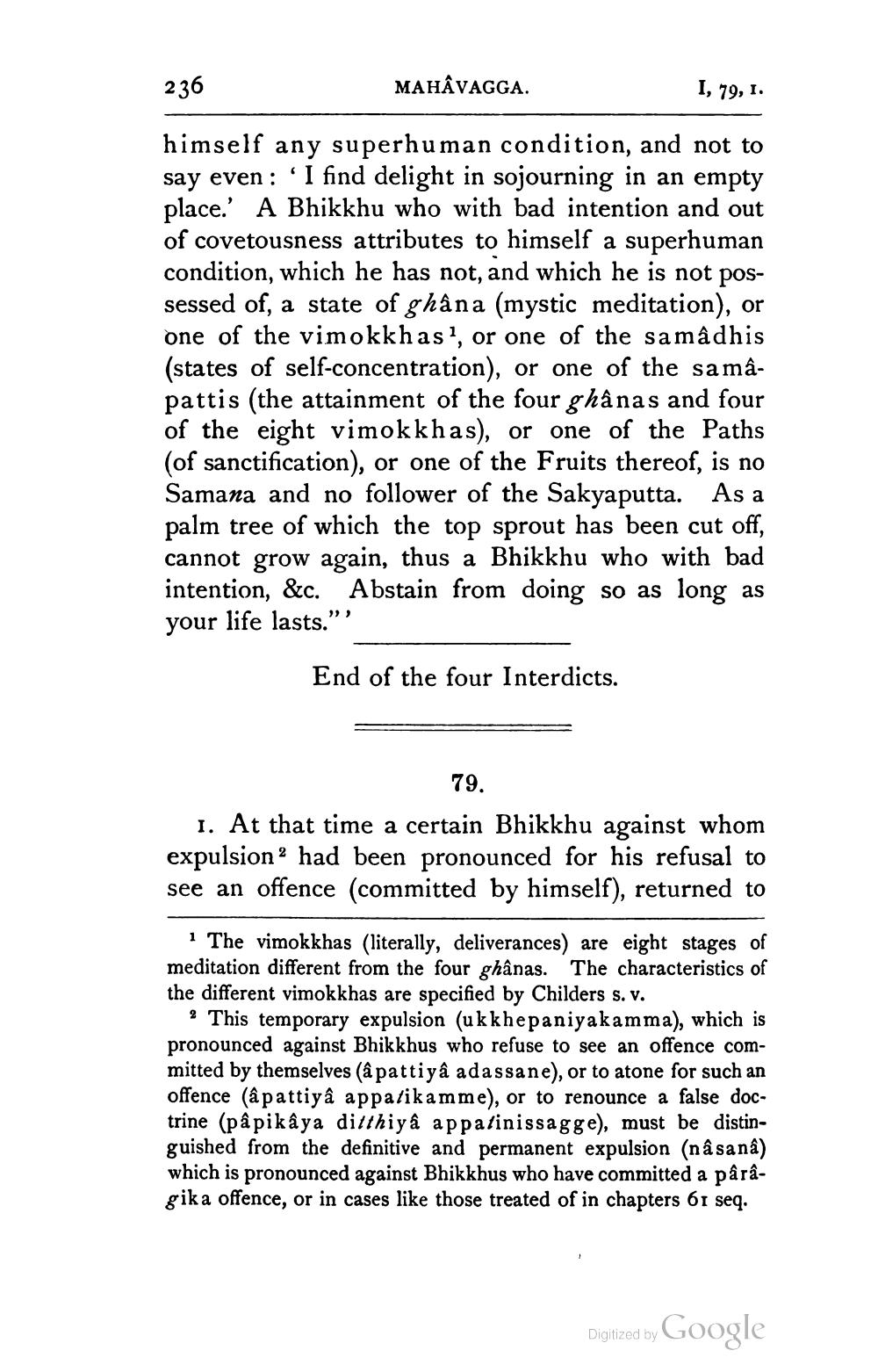________________
236
I, 79, I.
(
himself any superhuman condition, and not to say even I find delight in sojourning in an empty place.' A Bhikkhu who with bad intention and out of covetousness attributes to himself a superhuman condition, which he has not, and which he is not possessed of, a state of ghana (mystic meditation), or one of the vimokkhas1, or one of the samâdhis (states of self-concentration), or one of the samâpattis (the attainment of the four ghânas and four of the eight vimokkhas), or one of the Paths (of sanctification), or one of the Fruits thereof, is no Samana and no follower of the Sakyaputta. As a palm tree of which the top sprout has been cut off, cannot grow again, thus a Bhikkhu who with bad intention, &c. Abstain from doing so as long as your life lasts."'
MAHAVAGGA.
End of the four Interdicts.
79.
1. At that time a certain Bhikkhu against whom expulsion had been pronounced for his refusal to see an offence (committed by himself), returned to
1 The vimokkhas (literally, deliverances) are eight stages of meditation different from the four ghânas. The characteristics of the different vimokkhas are specified by Childers s. v.
2 This temporary expulsion (ukkhepaniyakamma), which is pronounced against Bhikkhus who refuse to see an offence committed by themselves (â pattiyâ adassane), or to atone for such an offence (â pattiyâ appa/ikamme), or to renounce a false doctrine (pâ pikâya ditthiyâ appatinis sagge), must be distinguished from the definitive and permanent expulsion (nâsanâ) which is pronounced against Bhikkhus who have committed a pârâgika offence, or in cases like those treated of in chapters 61 seq.
Digitized by Google




